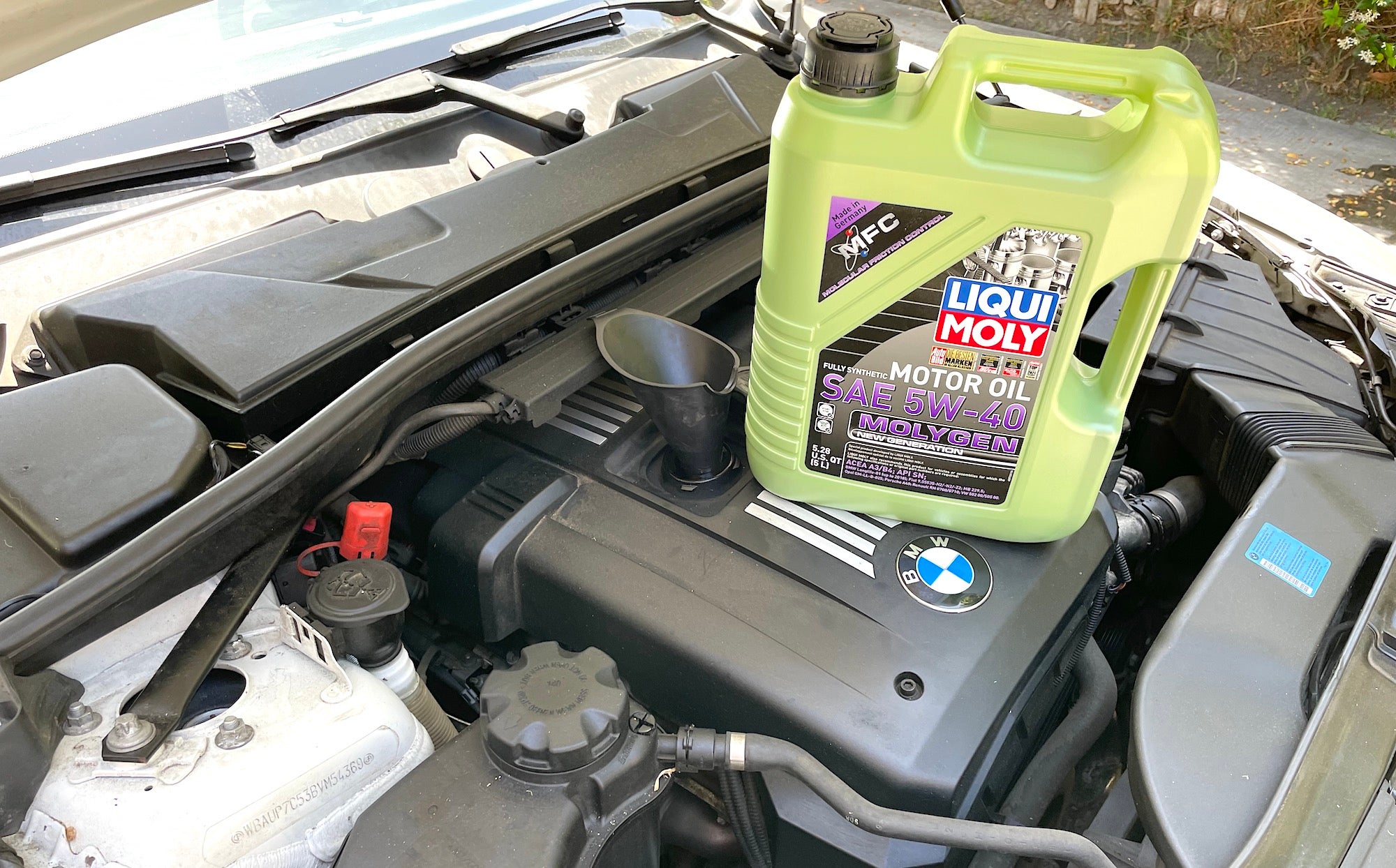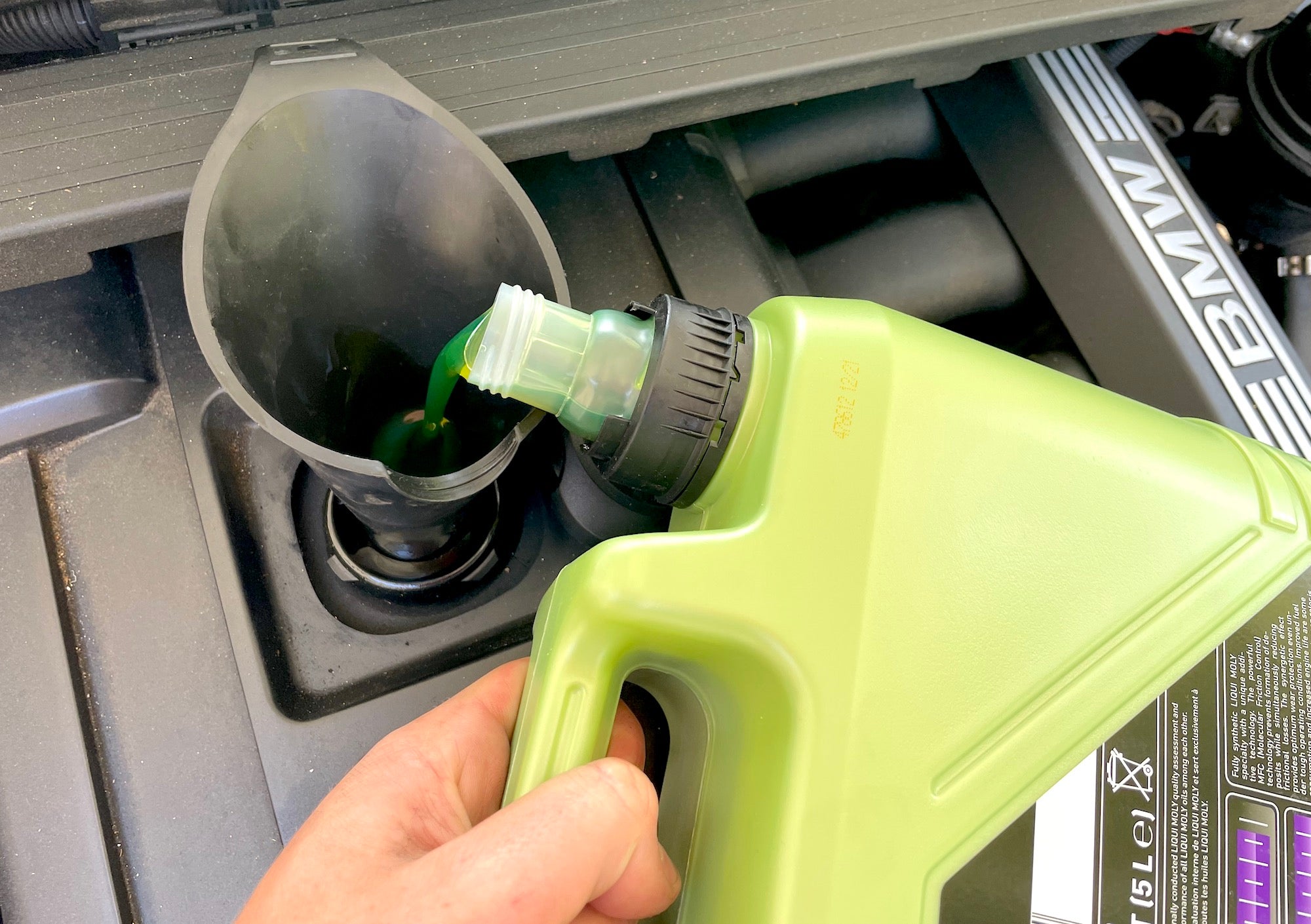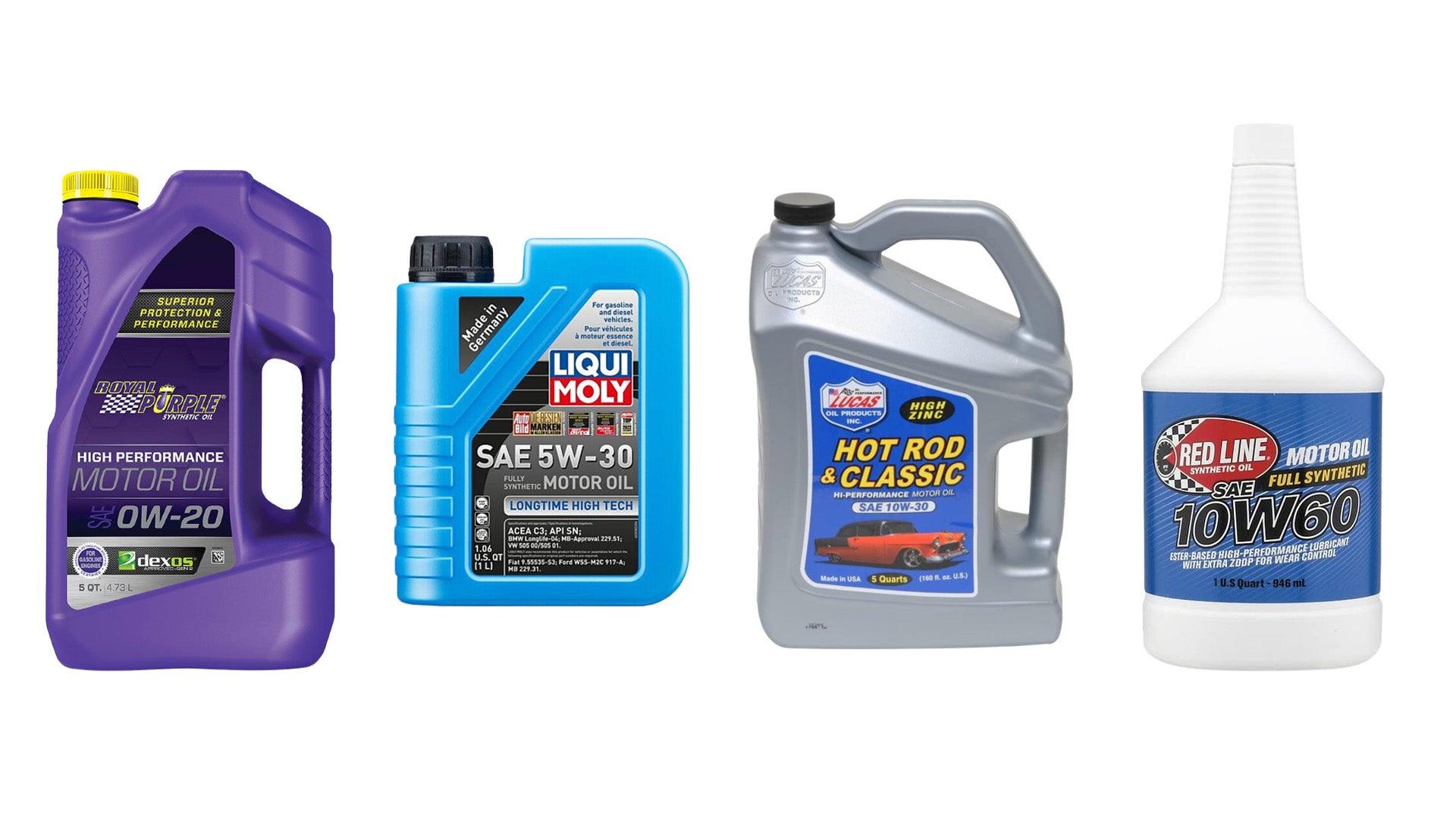No truer words have ever been said: oil is the lifeblood of your car's engine. Its purpose is to lubricate the engine's many crucial components to ensure a long, reliable life. It's also a consumable product, meaning it has a set change interval to ensure its purpose is as fulfilled as possible.
Just like determining the right oil change interval—which is sometimes a good idea to shorten—determining which engine oil weight to change it with is an important factor in sound automotive maintenance.
Which begs the question: which engine oil weight is best for your car?
What is Oil Weight?
When people discuss an oil's weight, they're referring to the oil's viscosity, or how it fast it flows at a certain temperature as designated by The Society of Automotive Engineers (SAE). In a common, everyday multi-grade oil, the first number is the oil's viscosity rating at -17.8 degrees Celsius (0 degrees Fahrenheit), whereas the second one is its rating at an engine's operating temperature, which is commonly referenced as 100 degrees Celsius (212 degrees Fahrenheit). We discuss more of these finer details of oil weight at length in one of our many Cars 101 blogs.
There are also single-grade oils out there, but they're far less common and usually not found in anything rolling around public streets on the regular. Well, it depends on where you're located—if you live in the coastal region of Orange County, California, it's not uncommon to see old air-cooled Volkswagens rolling around with single-grade oils lubricating their little sewing-machine-looking engines in the summertime. It's also a popular summer-weather choice for motorcycle riders and tractor owners. Do you use one yourself? Comment below!
But by and large, multi-grade is the most common type.

Why Oil Weight Matters
Having the right oil weight is important because it ensures maximum engine lubrication and protection. In colder climates during winter, a 0W-30 will have more protection at startup than a 15W-50, though a 15W-50 will fare better on a racetrack in the summertime.
Very-new engines—especially ones that are turbocharged like the A90 Toyota GR Supra 3.0—often run very thin 0W-20 or 0W-30 multi-grade oils because of their tighter tolerances, as well as needing to be thin enough to meet the turbo's lubrication needs. On the other hand, the E9X BMW M3 runs a more versatile 10W-60 as it needs good startup protection as well as the ability to keep its high-strung, near-race-engine-like 4.0-liter V8 amply lubricated in any scenario.
Which Oil Weight is Best For My Car?
All right, enough babbling, here's how to find out which oil weight is best for your car: read your owner's manual.
This sounds awfully simple and mildly smartass-like, but it's the truth. In fact, most automakers outline which oil weight is best for your car depending on the climate you live in. This information can also be found via a simple Google search on your phone, or in one of the big books at your favorite local auto parts retailer.

But What About Different Types of Oil?
There are three types of engine oil out there—synthetic, synthetic blend, and conventional. By and large, synthetic offers the most protection and resilience to heat and other wear-inducing factors, though it's also the most expensive type. It's also more environmentally friendly, cleaner, far more resistant to breaking down and sludging up, and more resistant to burn/consumption.
Branding ought to not be a big concern when it comes to oil. As long as you're running the correct, manufacturer-suggested oil with the right certifications, it's really splitting hairs. Like, we're talking splitting a strand of hair off of an infant, baby mouse here.
To sum it all up: run the manufacturer-recommended weight for the climate you live in, and make sure you also pay attention to what the manufacturer suggests for type and certifications.
More from The Autance
- Lewin Day explains why the 2007 Toyota Yaris is an awful roadtrip car
- Here's how a turbo wastegate works
- James Gilboy discusses Lewis Hamilton's epic win streak in F1
- Hank O'Hop shares how Eastwood introduces your garage to the world of 3D printing









